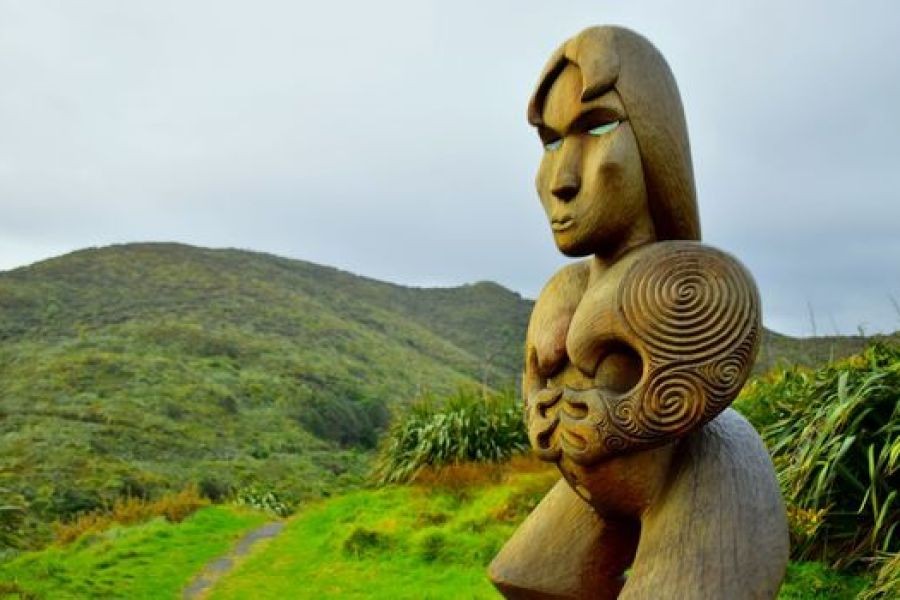In New Zealand, the enduring issue of Maori land rights continues to reverberate through the nation's legal system. This complex and deeply rooted matter accounts for over 30% of the country's legal disputes, highlighting its significance in the socio-political and economic landscape. Understanding the intricacies of Maori land claims not only sheds light on historical grievances but also underscores the ongoing challenges and opportunities in New Zealand's path towards reconciliation and equity.
The Historical Context of Maori Land Rights
The history of Maori land rights is intertwined with the Treaty of Waitangi, signed in 1840. This treaty, intended to protect Maori rights, has often been a source of contention due to differing interpretations and subsequent breaches. Over time, land confiscations and alienation led to significant Maori land loss, fueling grievances that persist today. The Waitangi Tribunal, established in 1975, has been pivotal in addressing these claims, yet challenges remain in ensuring fair redress and sustainable solutions.
Current Legal Landscape
Maori land claims involve complex legal frameworks and processes. The Waitangi Tribunal plays a crucial role in investigating claims and making recommendations. However, its findings are not binding, which sometimes leads to prolonged negotiations and settlements. The New Zealand government has committed to resolving these disputes, but the path to resolution is often fraught with legal and bureaucratic hurdles.
The Economic Implications of Maori Land Claims
Resolving Maori land claims is not just a matter of justice but also has significant economic implications. According to Stats NZ, Maori-owned businesses contribute substantially to the economy, particularly in sectors like agriculture, forestry, and tourism. Land settlements can enhance Maori economic participation, potentially boosting GDP and fostering economic equity. However, unresolved claims can lead to uncertainty, affecting investment and development opportunities.
Case Study: Ngai Tahu Settlement
One of the most notable settlements is with Ngai Tahu, a South Island iwi. After extensive negotiations, a settlement was reached in 1998, involving a payment of $170 million, the return of significant lands, and other cultural redress components. This settlement has enabled Ngai Tahu to become a major economic player in New Zealand, demonstrating the transformative potential of resolving land claims.
Comparative Analysis with Global Examples
Globally, indigenous land rights are a critical issue, with parallels in countries like Canada and Australia. Canada's Truth and Reconciliation Commission has been instrumental in addressing indigenous grievances, emphasizing the importance of cultural recognition and redress. Similarly, Australia's Native Title Act provides a framework for recognizing indigenous land rights, although challenges remain in ensuring equitable outcomes.
For New Zealand, these examples highlight the importance of comprehensive legal frameworks and genuine engagement with indigenous communities. By learning from global precedents, New Zealand can refine its approach to Maori land claims, fostering a more inclusive and equitable society.
Pros and Cons of Current Approaches
Resolving Maori land claims involves complex considerations:
- Pros: Successful settlements can lead to economic empowerment, cultural revitalization, and strengthened relationships between Maori and the Crown.
- Cons: The process can be lengthy and contentious, with potential for legal challenges and dissatisfaction among some Maori groups.
Future Trends and Predictions
Looking ahead, the future of Maori land claims in New Zealand will likely involve increased focus on co-governance and partnership models. The government has signaled a commitment to addressing historical grievances and fostering collaboration. This approach aligns with global trends towards indigenous rights and recognition, as evidenced by international frameworks like the United Nations Declaration on the Rights of Indigenous Peoples.
Conclusion and Call to Action
Resolving Maori land rights claims is a pivotal challenge and opportunity for New Zealand. It requires a commitment to justice, equity, and sustainable development. As New Zealand continues on this journey, it is crucial for policymakers, businesses, and communities to engage in meaningful dialogue and action. What are your thoughts on the future of Maori land rights in New Zealand? Share your insights below!
People Also Ask
- How do Maori land rights impact New Zealand's economy? Maori land claims influence sectors like agriculture and tourism, potentially boosting GDP as settlements enhance Maori economic participation.
- What are the biggest misconceptions about Maori land claims? A common myth is that all claims are financially motivated, yet many focus on cultural and historical redress.
- What strategies can improve Maori land claim resolutions? Strengthening co-governance models and increasing Maori involvement in decision-making can enhance outcomes.
Related Search Queries
- Maori land rights in New Zealand
- Waitangi Tribunal claims process
- Economic impact of Maori land settlements
- Ngai Tahu land settlement
- Indigenous land rights globally
- Maori economic development
- Co-governance in New Zealand
- Future of Maori-Crown relations
- Legal framework for Maori land claims
- Maori land redress examples































